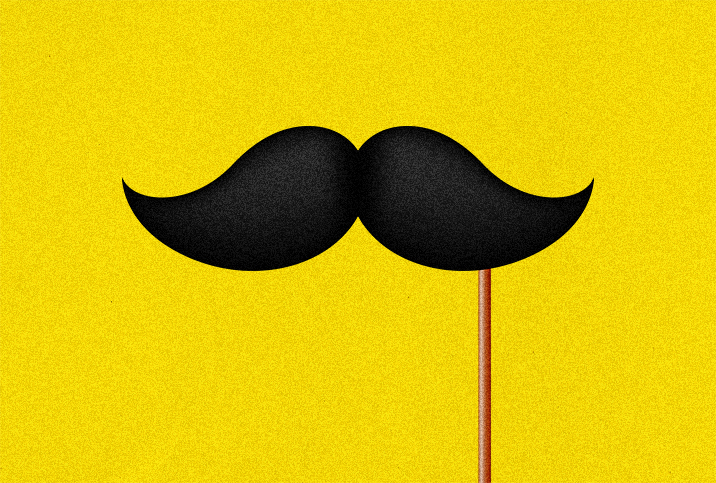Cultural Pressures Around Masculinity May Shorten Men's Lifespans

Key Points
- Many aspects of masculinity are positive, but when taken to excess, some traits deemed masculine can be harmful to men and those around them.
- Research indicates men who feel pressured to broadcast their "manliness" are more inclined to behave in potentially self-destructive ways.
- These actions can lead to various health outcomes, including acute and chronic conditions and a shorter lifespan.
From the Marlboro Man to hookup culture, stereotypical beliefs about manhood and masculinity can be pervasive. Many traits typically considered masculine are positive, but cultural pressures to prove one's 'manliness' can be harmful.
And now, according to new research, giving in to cultural pressure to become more "masculine" may even shorten a man's lifespan.
What is toxic masculinity, and why does it matter?
"The term 'toxic masculinity' describes detrimental, constrictive and stereotype-reinforcing societal norms and behaviors linked to traditional male gender roles," said Jason Weed, L.M.H.C., a licensed mental health counselor with Thriveworks in Henderson, Nevada.
Perspectives and behaviors associated with masculinity can have a profound negative impact on men and everyone around them. Beliefs related to what men should be like can permeate everything from stereotypes of facial hair to a man's well-being and romantic relationships.
"Everyday examples of toxic masculinity can include pressure on men to be physically strong, emotionally stoic and dominant," said Martha Tara Lee, D.H.S., a relationship counselor and clinical sexologist with Eros Coaching in Singapore. "It can manifest in behaviors like bullying, objectifying women or ridiculing men who do not conform to traditional masculine norms."
Many experts take issue with the phrase toxic masculinity because it suggests masculinity itself is the problem, rather than the negative behaviors and beliefs the term refers to, said Rebekah Wanic, Ph.D., a psychologist in San Diego.
These experts argue that it can oversimplify a complex concept and place blame on men without exploring how it harms them, too.
"It is better to focus on specific behaviors—such as aggression or emotional suppression—use less charged language, and emphasize the distinction between potentially harmful behaviors and masculinity itself," Wanic said. "There are many expressions of masculinity that are positive and beneficial to men, women and society."
What are the negative effects of toxic masculinity?
"The ideas and actions associated with toxic masculinity can have deleterious effects on men and how they engage with the world," said Louise Stanger, Ed.D., L.C.S.W., a clinical interventionist and the founder of All About Interventions in Rancho Santa Fe, California.
Research has demonstrated this in various ways, including what gender roles do to people's posture, how toxic masculinity phrases can contribute to depression and why pressure to prove manliness may drive risk-taking behaviors.
Beliefs about manhood and related actions are often passed down intergenerationally, according to Stanger.
"Many men who exhibit negative traits such as aggression, emotional repression and a need for control are modeling behaviors demonstrated by a father figure whose own father likely behaved similarly," she said. "These harmful ideas and actions are further reinforced by society and the media, which can create a vicious cycle that is incredibly difficult to escape."
Recommended
- How Does Losing a Ball (or Two) Impact Masculinity?: Cancer may take your testicles, but it can't take your manhood.
- You're No Less a Man if You Can't Grow a Beard: Facial hair is often tied to masculinity, but maybe our definition of masculinity is flawed.
- Between The Pages: A Guide To Help Men Become Men: Zachary Gerdes, Ph.D., draws on scientific research to explain what it means to be a man.
How does pressure to prove their manhood affect men's health and longevity?
Men in virtually every country have poorer health and shorter lifespans than women, according to research. Toxic masculinity may be one contributing factor.
Cultural pressures around masculinity drive men to engage in more risky behavior to avoid having their manhood questioned. Such behavior can lead to serious health consequences, according to a 2023 study published in the Psychology of Men and Masculinities, a journal of the American Psychological Association (APA).
Researchers drew on a previous report that assessed how stringently 62 different countries uphold a belief in "precarious manhood." That is, the idea that manhood must be earned and defended because it can be lost or taken away. Most cultures believe in precarious manhood to some degree, but comparable beliefs about womanhood are rare, the study authors wrote.
According to the theory of precarious manhood, men may be motivated to restore or preserve their manhood by engaging in "masculine" behaviors, such as aggressive or risky actions that demonstrate manly ideals such as toughness or courage.
The researchers compared each nation's precarious manhood beliefs (PMB) with national rates of men's risk-taking behaviors, such as binge drinking, reckless driving or contact with venomous animals, and the associated health outcomes, such as cirrhosis of the liver or death by injury.
Additionally, they looked at how cultural pressures around masculinity related to health outcomes that didn't result from risky behaviors. They also controlled other factors, such as the number of doctors per capita, women's risk-taking and health, and the country's overall development.
They discovered men in countries that strongly upheld PMB were more inclined to engage in more risky behavior and experience poorer health outcomes than those in countries that didn't.
Moreover, the report indicated that men in the latter category lived an average of six years longer than those in the former.
The report's findings suggest that country-level beliefs about gender—not just men's own masculinity or related beliefs—can significantly influence men's health.
Among the 26 countries included, the United States falls somewhere in the middle regarding PMB, with Albania adhering most strongly and Finland adhering the least.
In the U.S., like most countries, men are more likely than women to die at any age. However, the difference is especially pronounced among 20-somethings, according to the Population Reference Bureau (PRB).
Among white non-Hispanic people in this age group, men are more than two-and-a-half times more likely to die. The death rate is about three times higher for Hispanic and non-Hispanic Black men.
Of the 42,000 deaths in this age group in 2007, 69 percent were attributable to three causes: accidents, homicide and suicide. These causes are all linked to risk-taking behavior, which, as the study authors noted, can contribute to chronic health conditions in men of all age groups.
For instance, heavy drinking and smoking may lead to lung cancer or cirrhosis, while eating a diet rich in red meat may contribute to heart disease.
Additionally, the pressure to be promiscuous—along with a reluctance to use protection or seek sexually transmitted infection (STI) screening—can pose significant risks to men's sexual health. These risks can include an increased vulnerability to conditions such as HIV/AIDs, chlamydia, gonorrhea and syphilis.
"Men may also face the physical ramifications of toxic masculinity because they forgo health-promoting behaviors or refuse to seek assistance to avoid appearing vulnerable," Weed said.
Men are, for example, much less likely than women to visit the doctor, according to a 2019 Cleveland Clinic survey of 1,174 adult men in the U.S. Roughly 72 percent of surveyed men would rather do chores, like cleaning the bathroom or mowing the lawn, than see their healthcare provider.
The survey also noted that 41 percent of respondents said they'd been told as children that men don't complain about health problems. Twenty percent admitted they'd withheld information about their health from their doctor.
Forty-six percent cited embarrassment among their reasons, 36 percent said they weren't willing to change their diet or lifestyle, and 37 percent said they knew something was wrong but weren't ready to face the diagnosis or would rather not know if they had any issues.
What Are the Best Sex Positions for Men With ED?: Certain sex positions work better than others for guys dealing with erectile dysfunction.
How does toxic masculinity affect mental health?
Men who possess more stereotypically masculine personality traits tend to have worse mental health than people who don't exhibit these traits as strongly, according to a 2016 study by the APA.
Familial and cultural pressures around masculinity may contribute to this in multiple ways, Weed noted.
"For one, the pressure to embody masculine traits and achieve specific milestones associated with manliness—be it becoming a modern pickup artist or helming the family business—can be incredibly stressful," Stanger said.
If someone's unable to meet these expectations, it may spawn negative emotions, including low self-esteem, sadness, anger, depression and loneliness.
"If you think that the only way I can succeed and be good enough is to do A, B, C and D, and that doesn't sit right with you, you can have a great deal of social anxiety, a great deal of anger," Stanger said.
Women are far more likely to be diagnosed with depression or attempt suicide. But research indicates men die by suicide three to four times as often as women, primarily because their methods—using a firearm, for example—tend to be more effective, a 2015 report suggested.
Depression isn't the only contributing factor to suicidal behavior, but research indicates it is one of the most significant.
"Because of the problematic notion that 'boys don't cry,' men may struggle to seek help or express vulnerability for fear of seeming weak," Lee said.
This can lead to emotional repression, elevated stress levels, and difficulty forming and maintaining relationships. It may also contribute to or exacerbate psychiatric conditions and perpetuate a cycle of isolation and loneliness.
Men are significantly less likely than women to seek help for mental health concerns, according to a 2019 meta-analysis of nine eligible studies, published in the American Journal of Men's Health. Researchers cited multiple potential reasons for this, including the influence of societal expectations and stigma.
The bottom line
"Problematic beliefs about manhood don't impact every man in the same way or to the same degree, but most experience the effects at some point, consciously or not," Weed said. "Introspection and educating yourself about gender roles, stereotypes and the impact of toxic masculinity can help you to confront deeply established attitudes and make positive behavioral changes."
Frank, honest, and empathetic discussions with loved ones and peers can further help to dismantle negative patterns, as can working with a counselor.


















